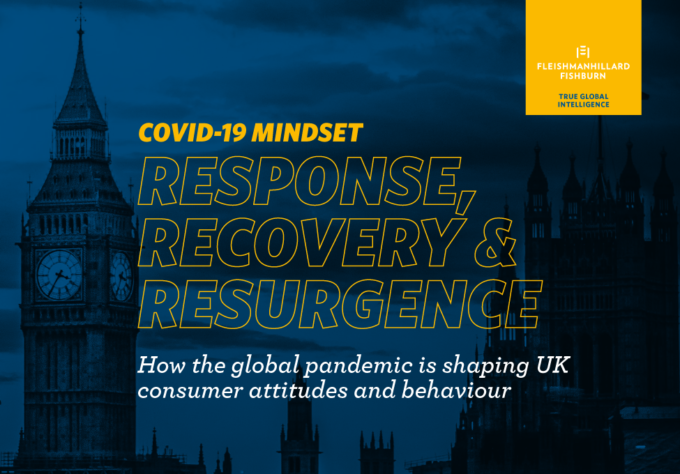Covid-19 Mindset: Response, Recovery and Resurgence

By Ben Walters, Account Manager
One of the most interesting findings to come out of FleishmanHillard’s six-country consumer study – COVID-19 Mindset: Response, Recovery and Resurgence – is this: consumers are most confident in their governments, but least confident in their employers, when it comes to the response to COVID-19.
Numerous pieces of research over the past five years have told us that people generally don’t trust their government and don’t trust politicians. During this same period, the prevailing attitude – pushed by businesses themselves – has been that the corporate world is better able to solve big, global problems than nation states are. Rightly or wrongly, this crisis is throwing doubt on that notion.
Clearly, the situations businesses and governments find themselves in aren’t directly comparable. Governments have different levers, tools and capabilities at their disposal; businesses don’t have the ability to borrow money on the level that governments do, for example. But there is a danger that consumers now feel like businesses promise the world in the good times, but then don’t deliver during the bad. Crises like these can expose hypocrisy and inauthenticity and lead to longer-term reputational damage for businesses. These findings should prove to be a wakeup call for the corporate world.
So, what can businesses do? The most important thing is to maintain and/or rebuild confidence with their stakeholders by communicating with them in a way that is accountable, transparent, and authentic. By adhering to basic norms and values, communications should acknowledge the pain and challenges we face today, whilst demonstrating a desire to help drive society out of this crisis to a better future.
But, crucially, communications that are not backed up by corresponding action and behaviour will ultimately be counterproductive. There are obvious areas where businesses can step in to support government and public services, and we have seen many organisations adapting supply chains and manufacturing processes to do just that. This shouldn’t be seen as a “nice to have”, though.
Our study has shown that nearly a third of employees will be looking for another job with an employer that supports its employees and will no longer be loyal to their employer because of the actions they take during the pandemic. Companies will be punished for how they act during this period.
We have already seen businesses taking this opportunity to establish a strong foundation for recovery from a reputational perspective. But we have also seen others who have made big errors which will cause them issues in the future. How companies act now will either confirm or prove wrong consumers’ suspicions, and ultimately determine the status of their long-term reputation
Find Out More
-
Platinum CMS Award
March 13, 2024
-
Changing Communications Tack at Mobile World Congress
February 21, 2024


